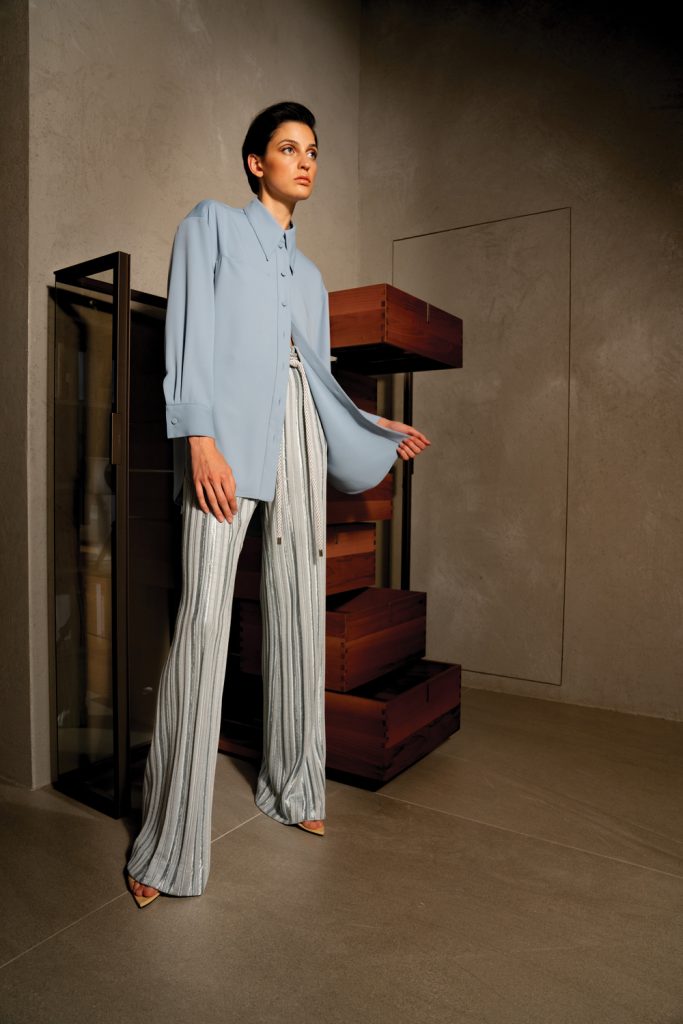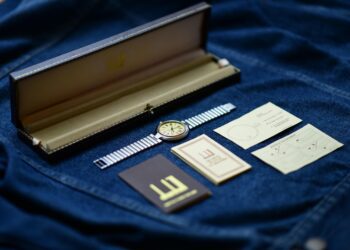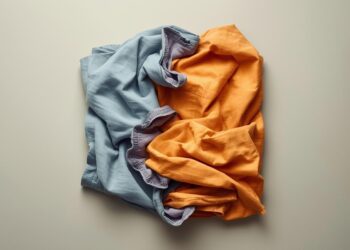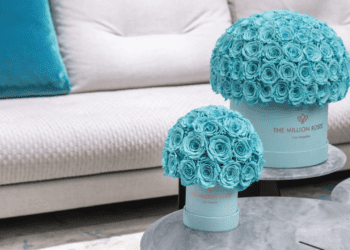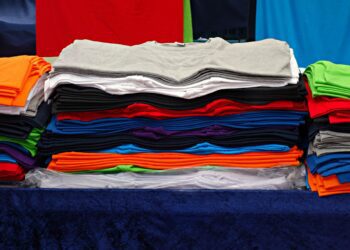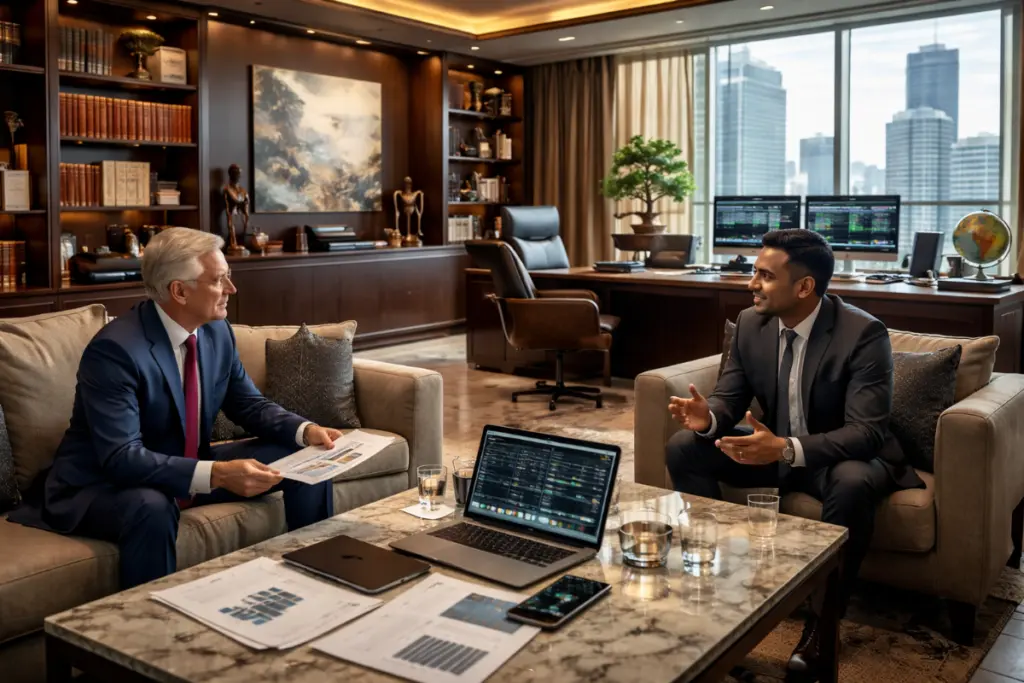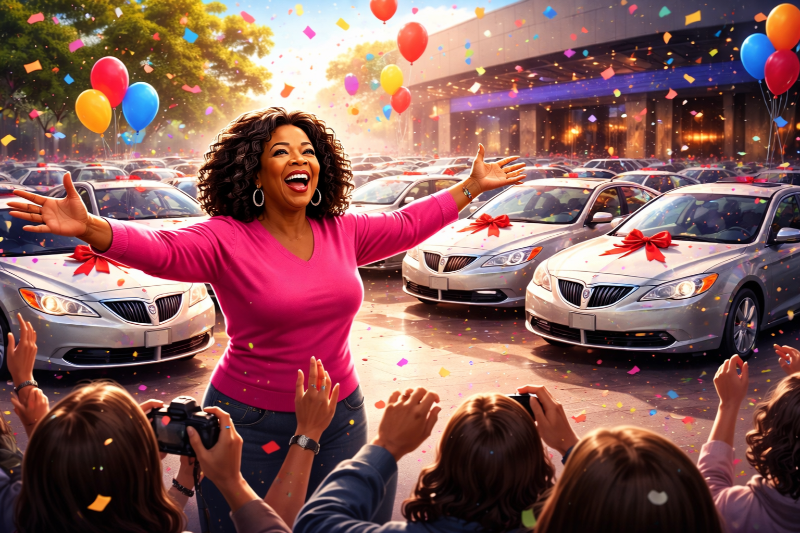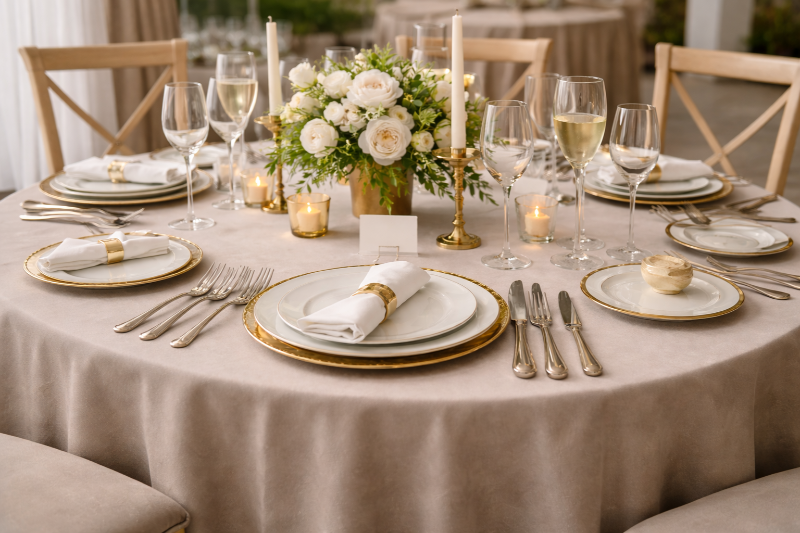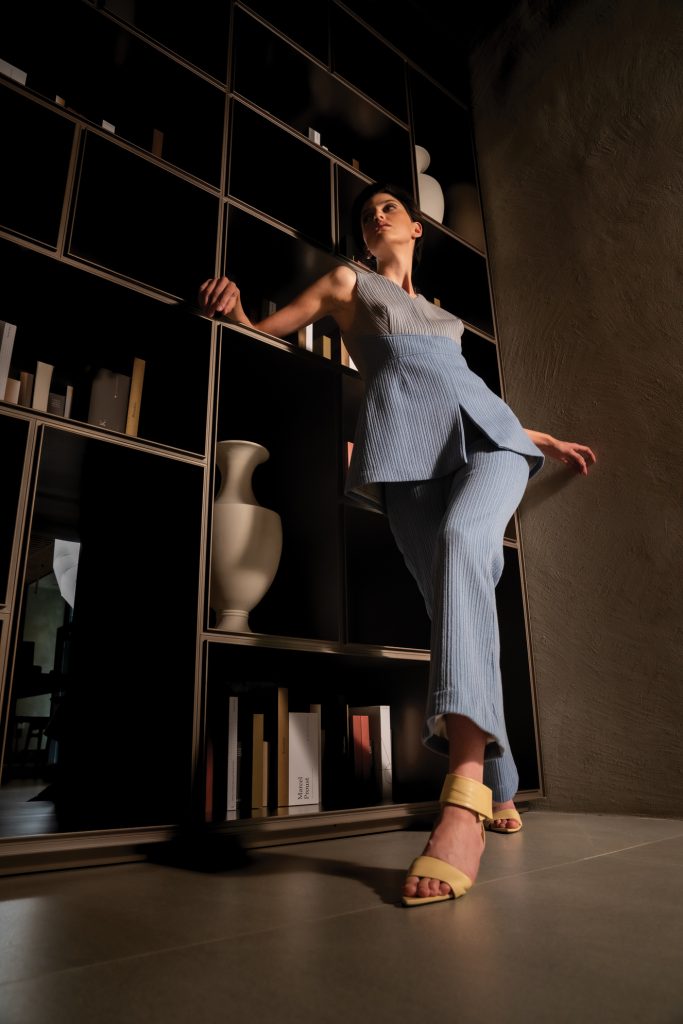 KZ_K Studio is a New York City-based fashion brand that was founded by Polish-born fashion designer Karolina Zmarlak and her business and life partner, Jesse Keyes. The brand is known for its modernist design philosophy, which emphasizes the use of technologically advanced materials integrated into minimally stylized functional forms.
KZ_K Studio is a New York City-based fashion brand that was founded by Polish-born fashion designer Karolina Zmarlak and her business and life partner, Jesse Keyes. The brand is known for its modernist design philosophy, which emphasizes the use of technologically advanced materials integrated into minimally stylized functional forms.
Efficiency and versatility are guiding principles for KZ_K Studio, with a focus on minimizing excess and maximizing utility. This approach results in a light, refined, and essentially minimal product form, while maintaining a sculpted silhouette. The brand’s design discipline is undergirded by multi-functionality, with collection pieces technically and precisely developed for convertibility or full reversibility.
They have a commitment to responsible manufacturing which is evident through the brand’s focus on client relationships and mindful wardrobes. The brand strives to minimize ornamentation, bypass trends, and construct garments that are designed to last a lifetime of use.
Karolina Zmarlak’s background in fashion design and Jesse Keyes’ training in architecture and entrepreneurship provide a unique blend of skills that inform the brand’s design approach. KZ_K Studio’s garments are made in New York City, with a focus on high-quality craftsmanship and attention to detail.
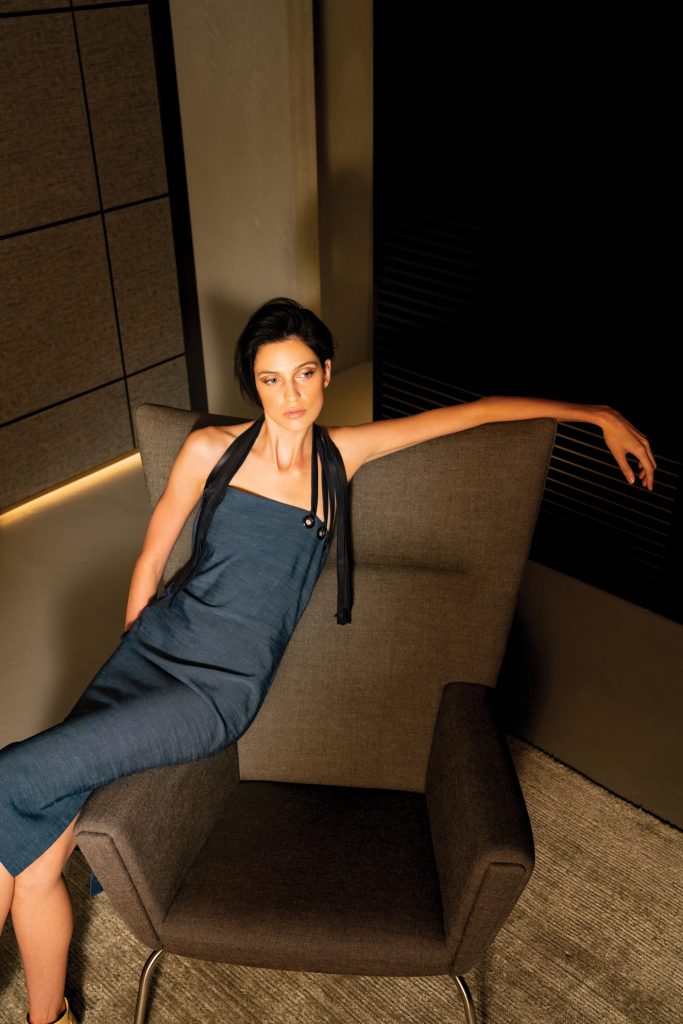 The brand’s aesthetic is characterized by clean lines, sculptural forms, and a neutral color palette. KZ_K Studio’s collections feature a range of garments, including dresses, tops, pants, and jackets, all designed with a focus on multi-functionality and versatility.
The brand’s aesthetic is characterized by clean lines, sculptural forms, and a neutral color palette. KZ_K Studio’s collections feature a range of garments, including dresses, tops, pants, and jackets, all designed with a focus on multi-functionality and versatility.
KZ_K Studio has been recognized for its innovative approach to fashion design, with features in publications such as Vogue, Elle, and Harper’s Bazaar. The brand has also been worn by celebrities such as Cynthia Nixon, Karolina Kurkova, Sigourney Weaver and Jodi Foster.
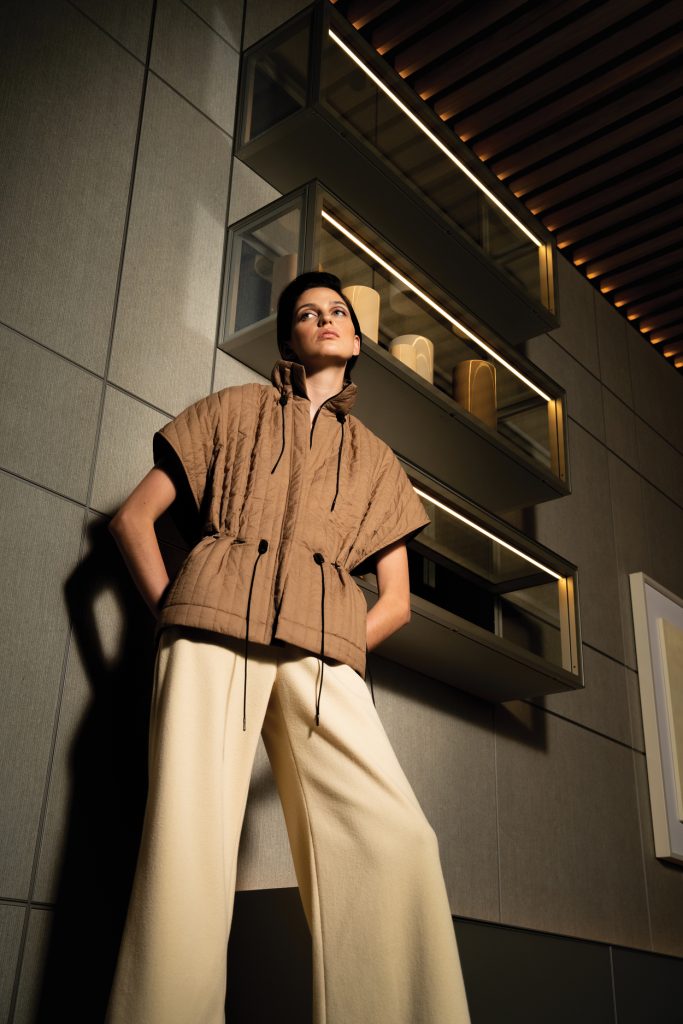 We spoke with Karolina to learn more:
We spoke with Karolina to learn more:
How did the brand come about?
I was on the train home with my partner, Jesse Keyes, from his architect Grandfather’s place in Washington DC, on Jan 1, 2009, when we conceived of a fashion line that would hew to the tenets of multi-functionalism, a foundational notion within the discipline of architecture. We wanted to make pieces that could be worn, each in many variations, and together in a series of alternative and creative ways to fit the unique functional and aesthetic needs of modern women. I had developed a made-to-measure business with Jesse, up until that point, but as the Great Recession hit, this new concept would allow our clients a similar kind of personalization, but would also be oriented toward creating value: buy 1 piece and wear it in 3 ways.
Why are you so passionate about it?
I suppose passion is inherent to any person’s vision quest, if she or he has one. I only wish for all, that she or he does have one, because then life’s not about passion, it’s about responsibility, technical capacity, purposeful productivity, and, ultimately, a connection made between the maker and the client, and, as important, but less appreciated, vice versa.
What do you see for the future of the brand?
Long term relationships with our fabric creators, our factory experts and our clients: slow fashion. Long term relationships, until death do us part.
